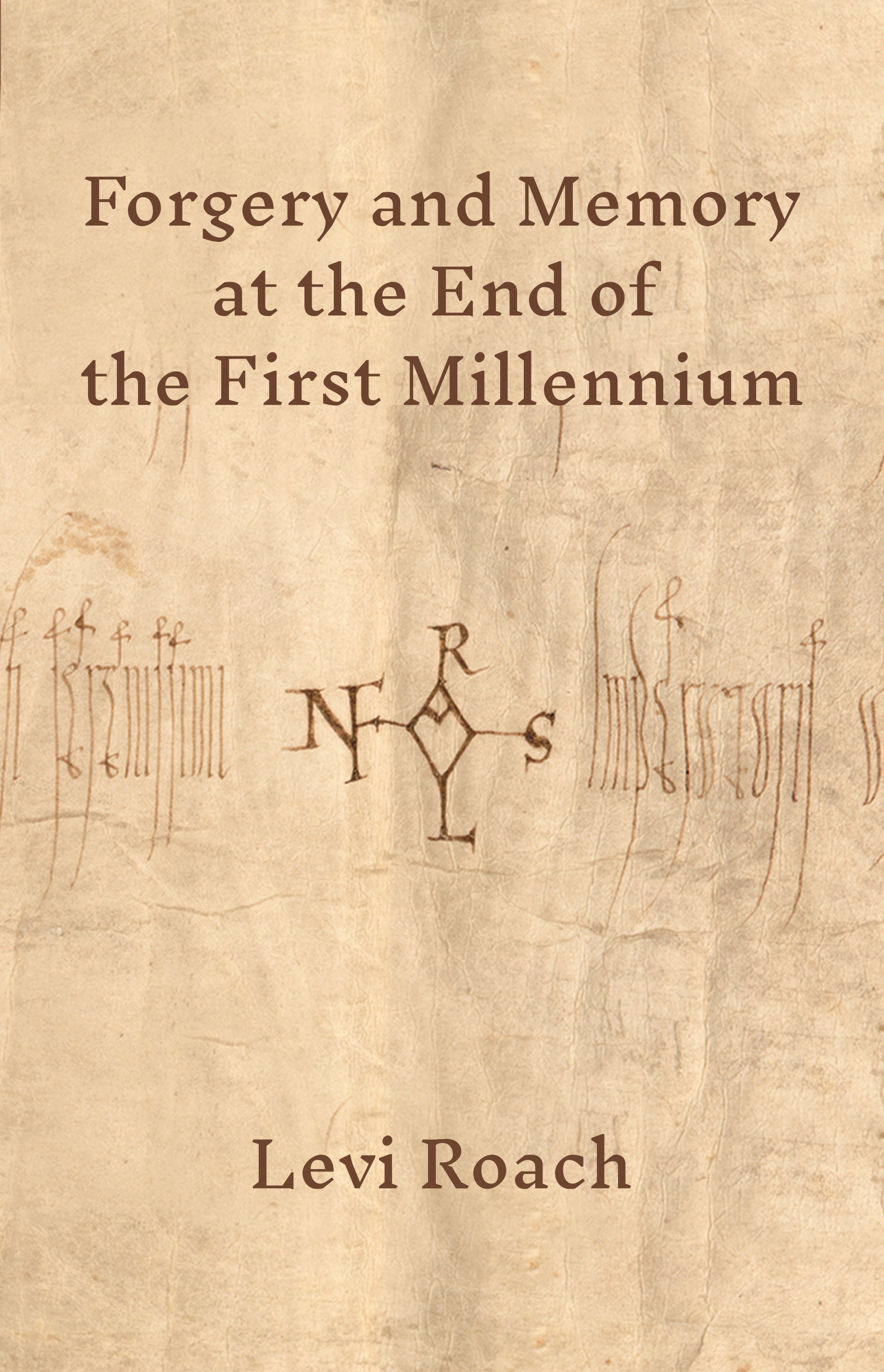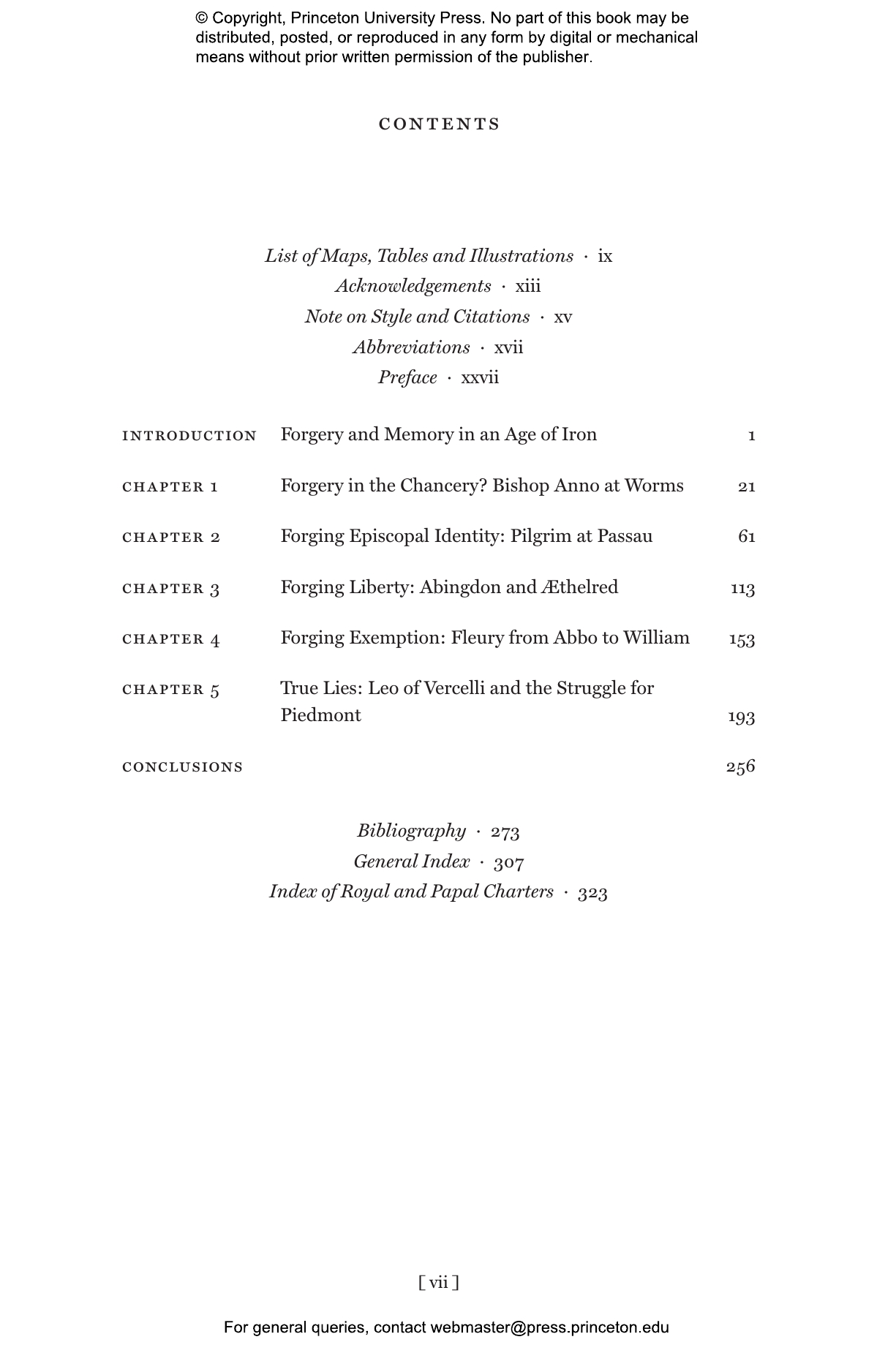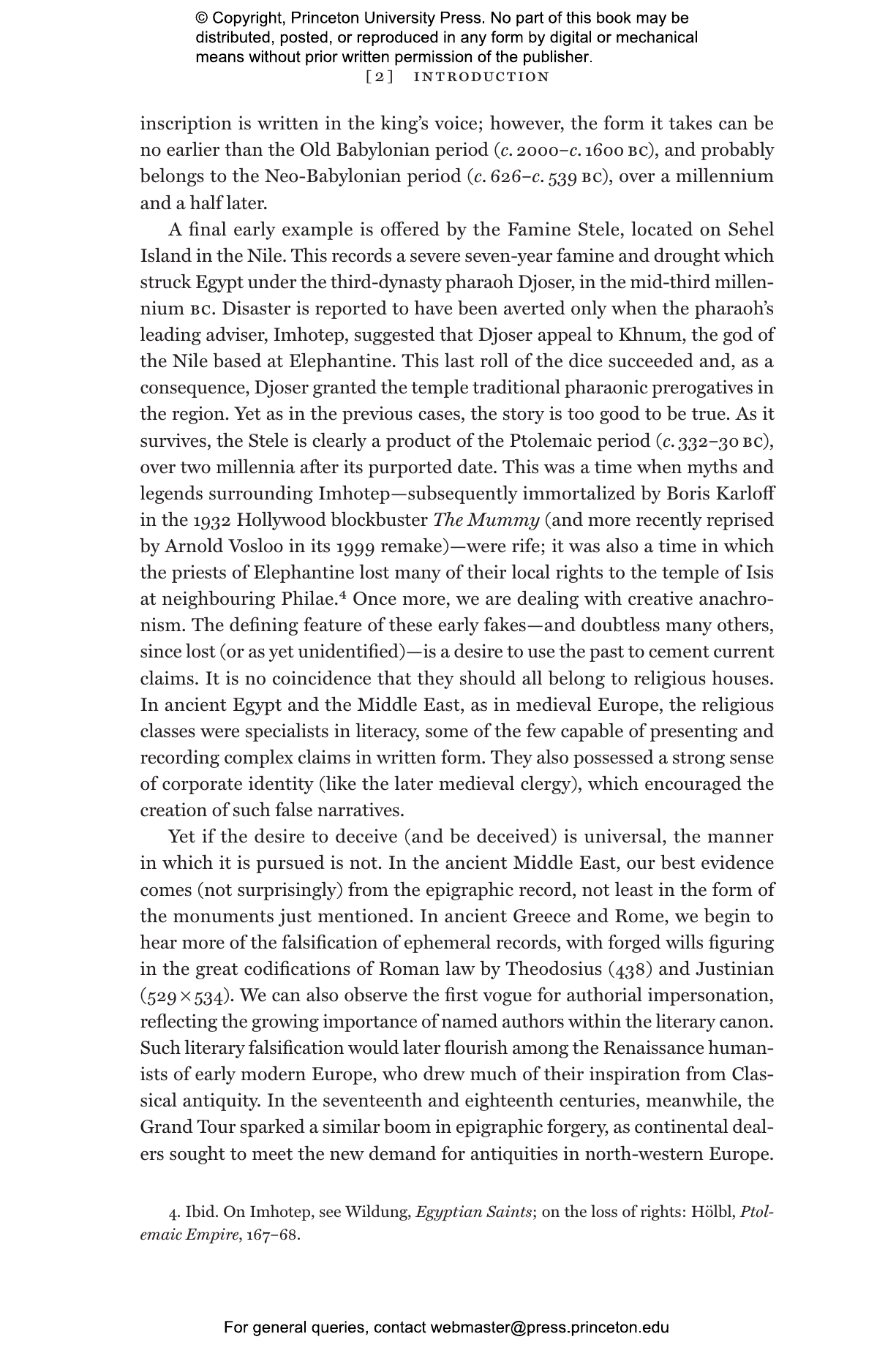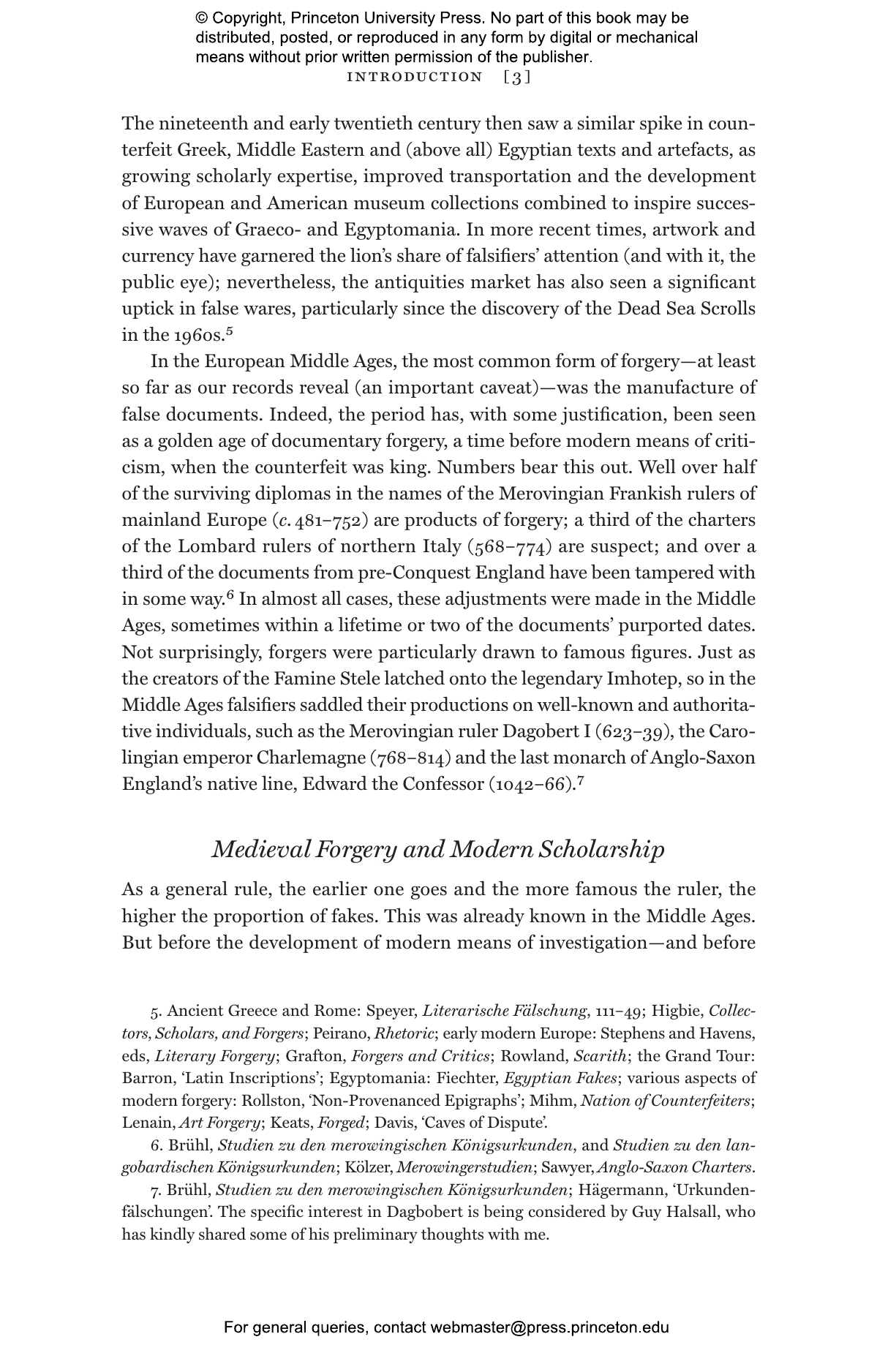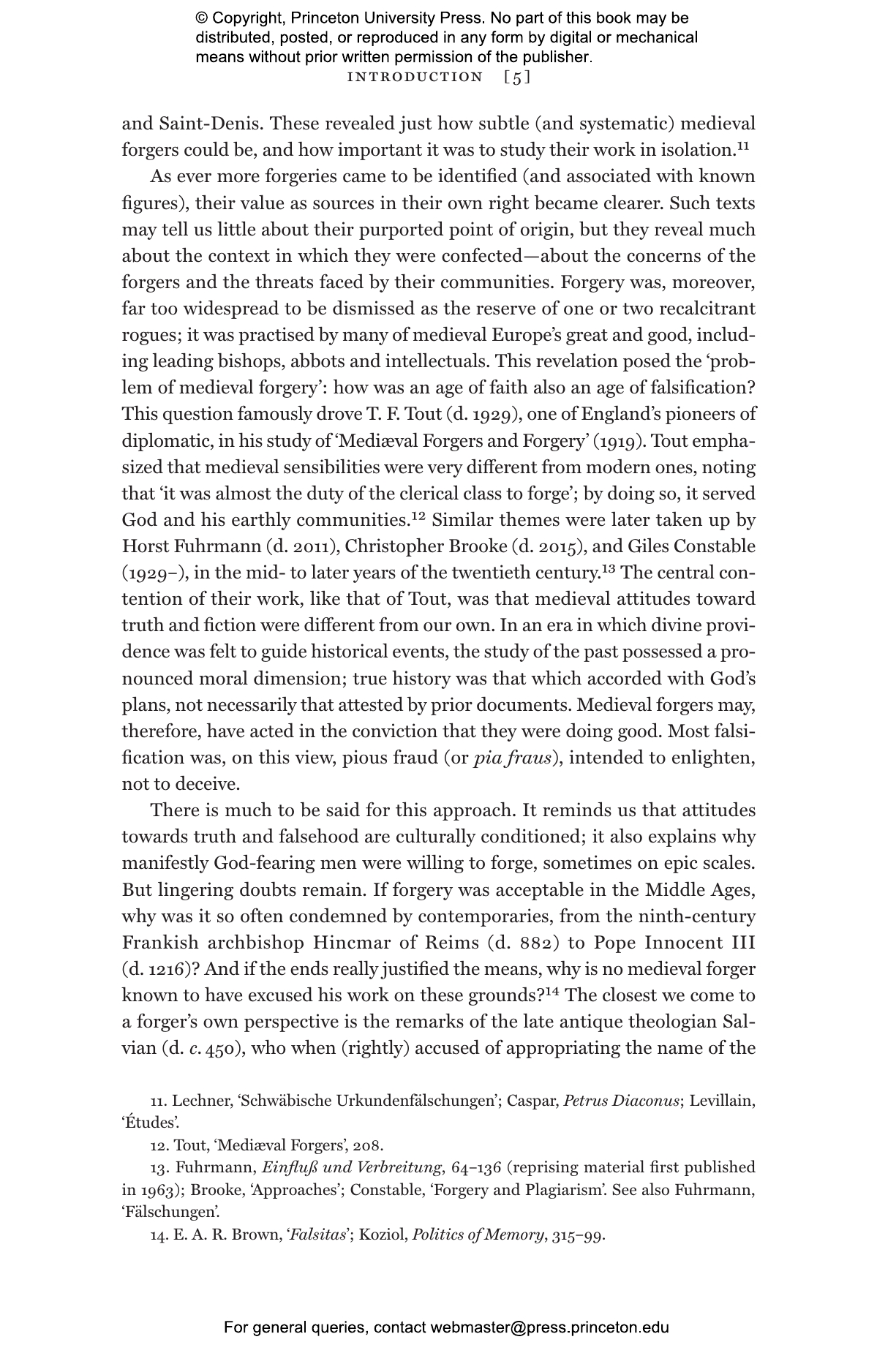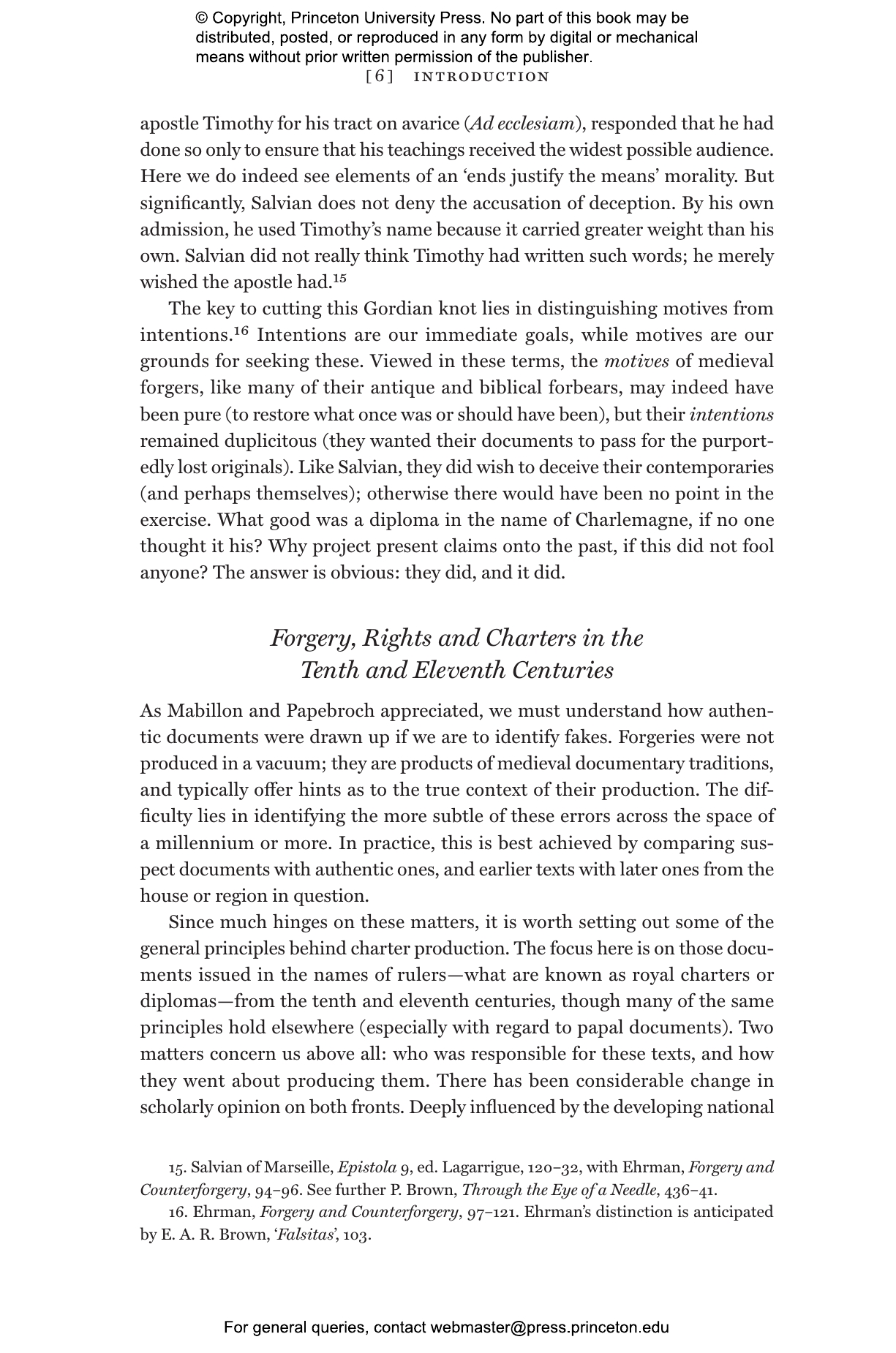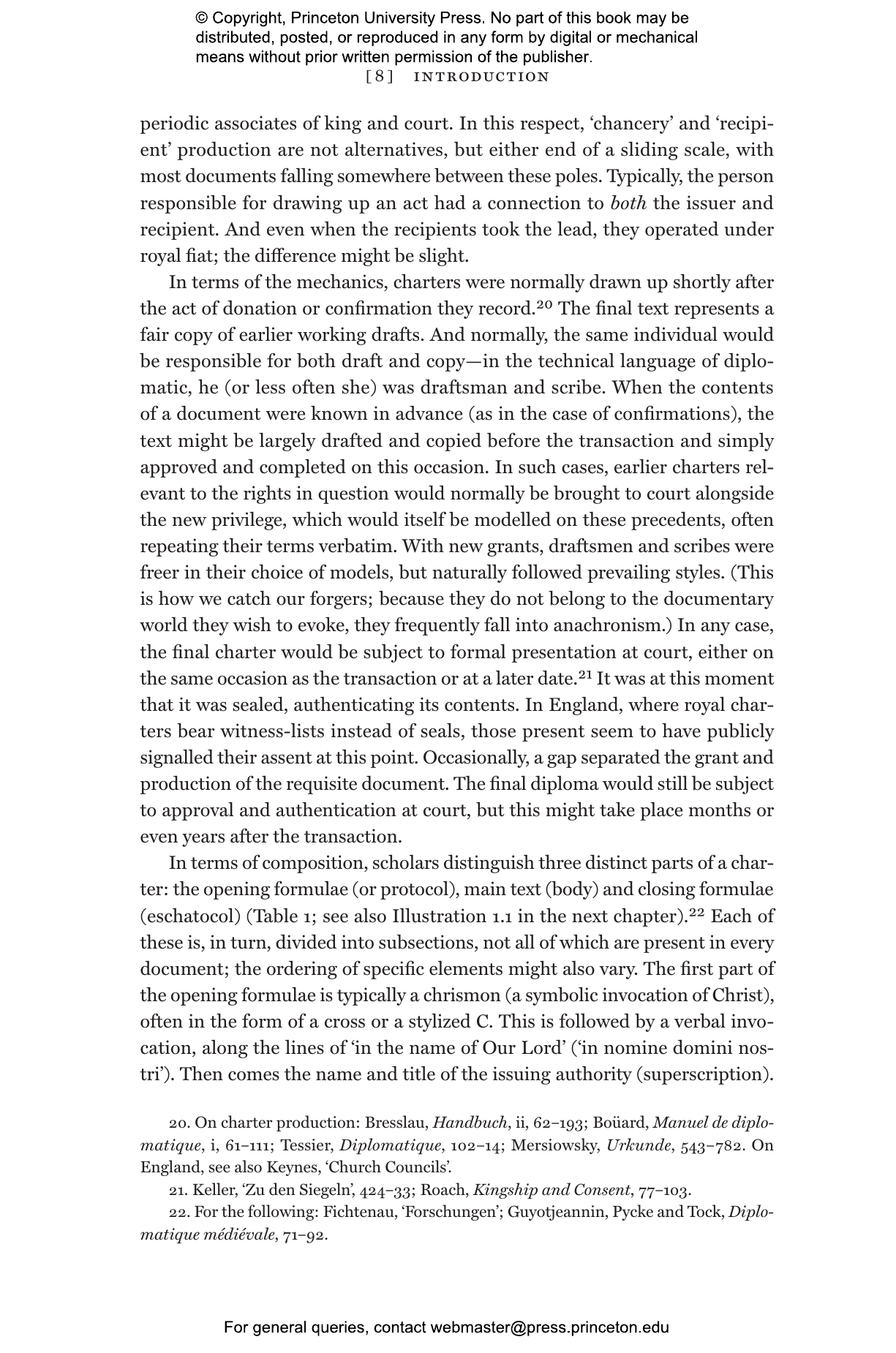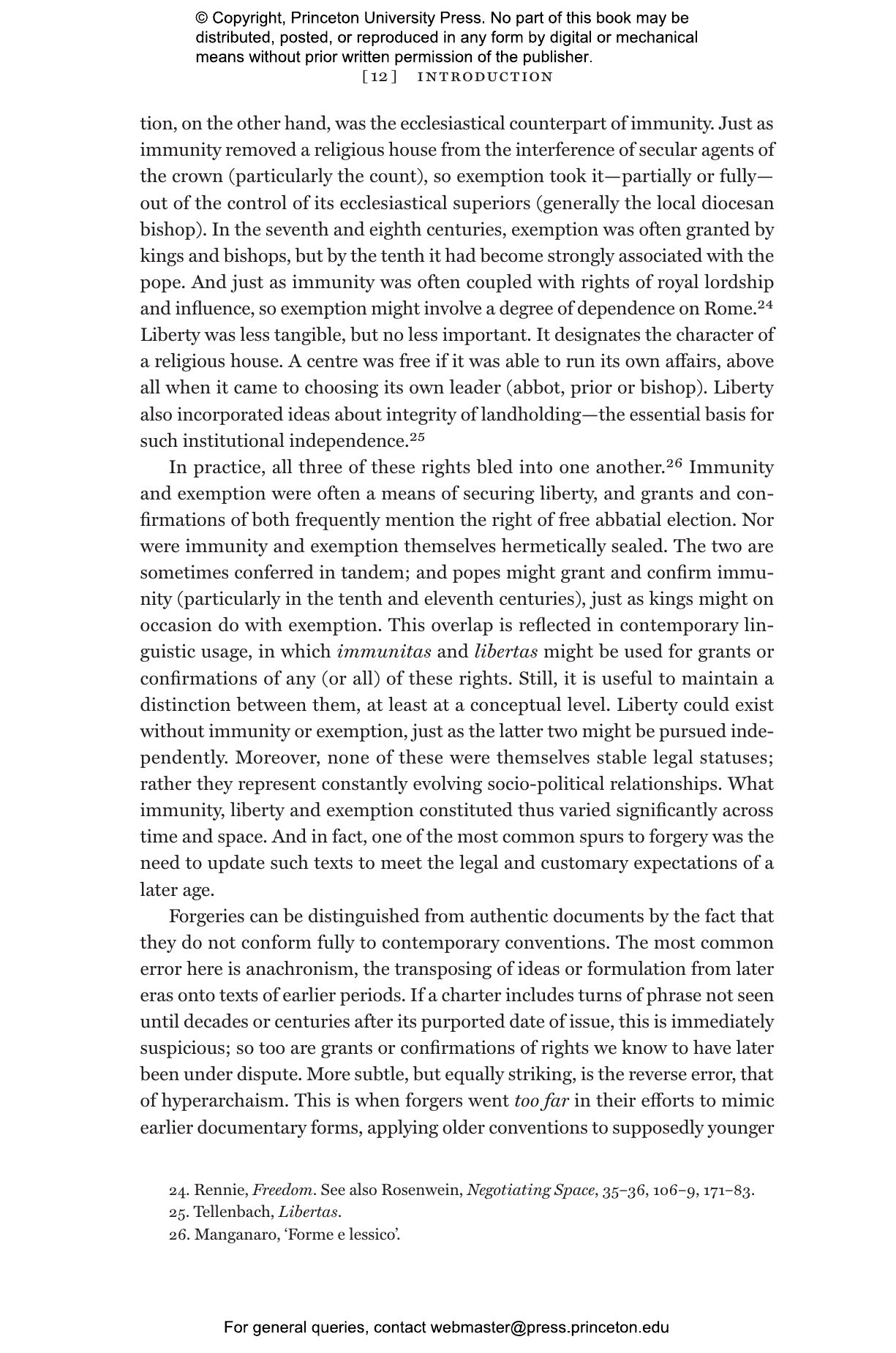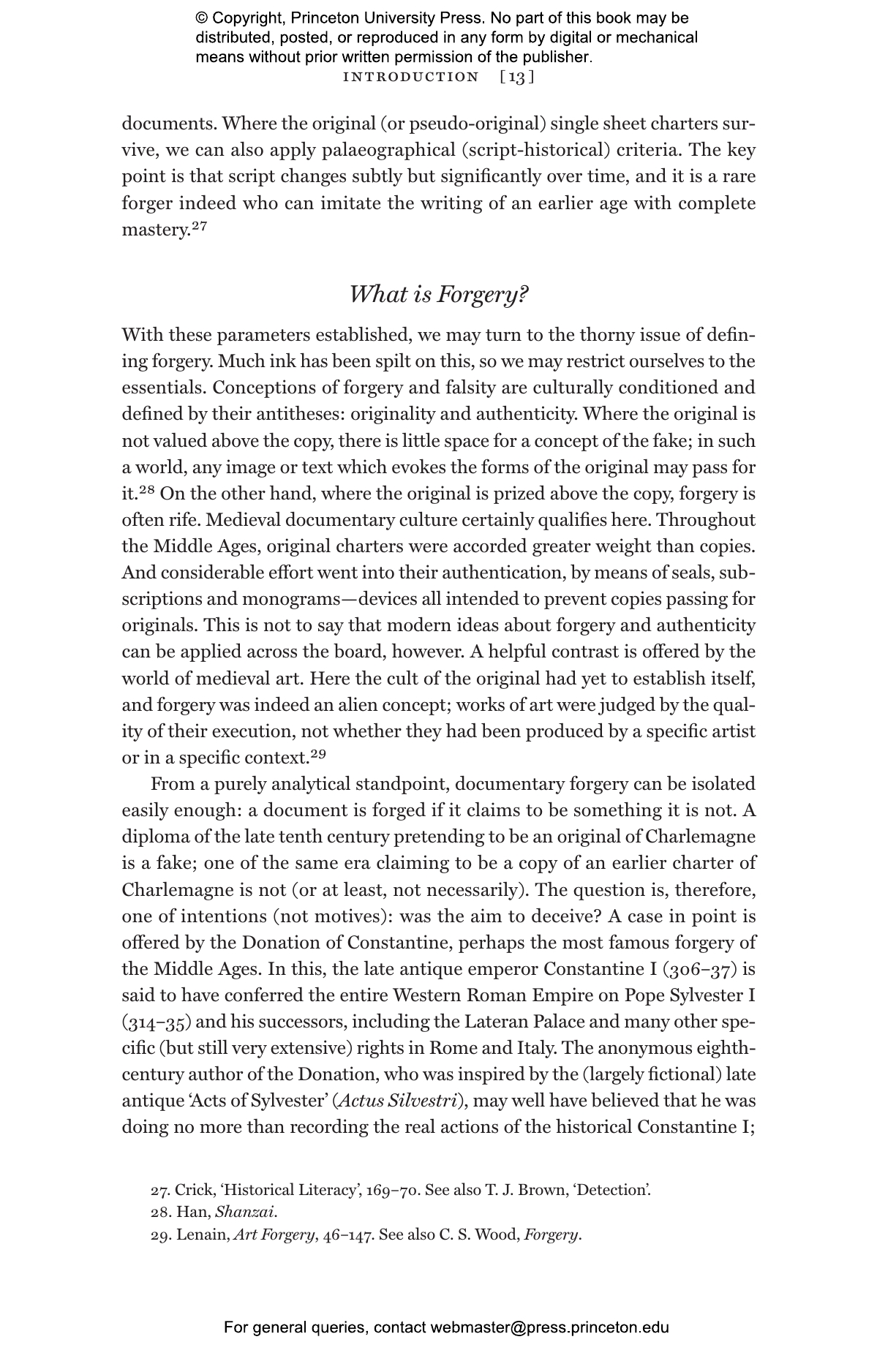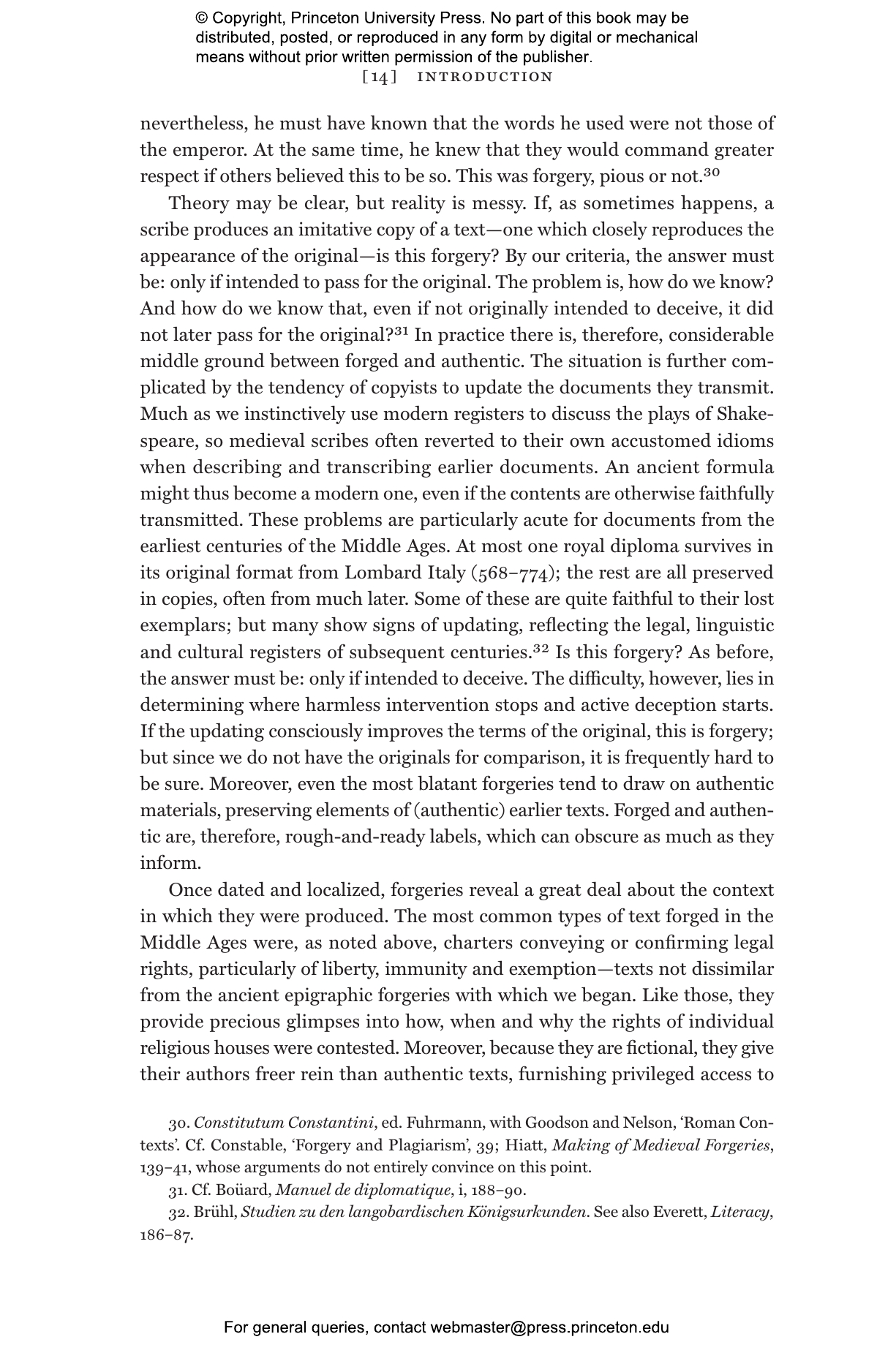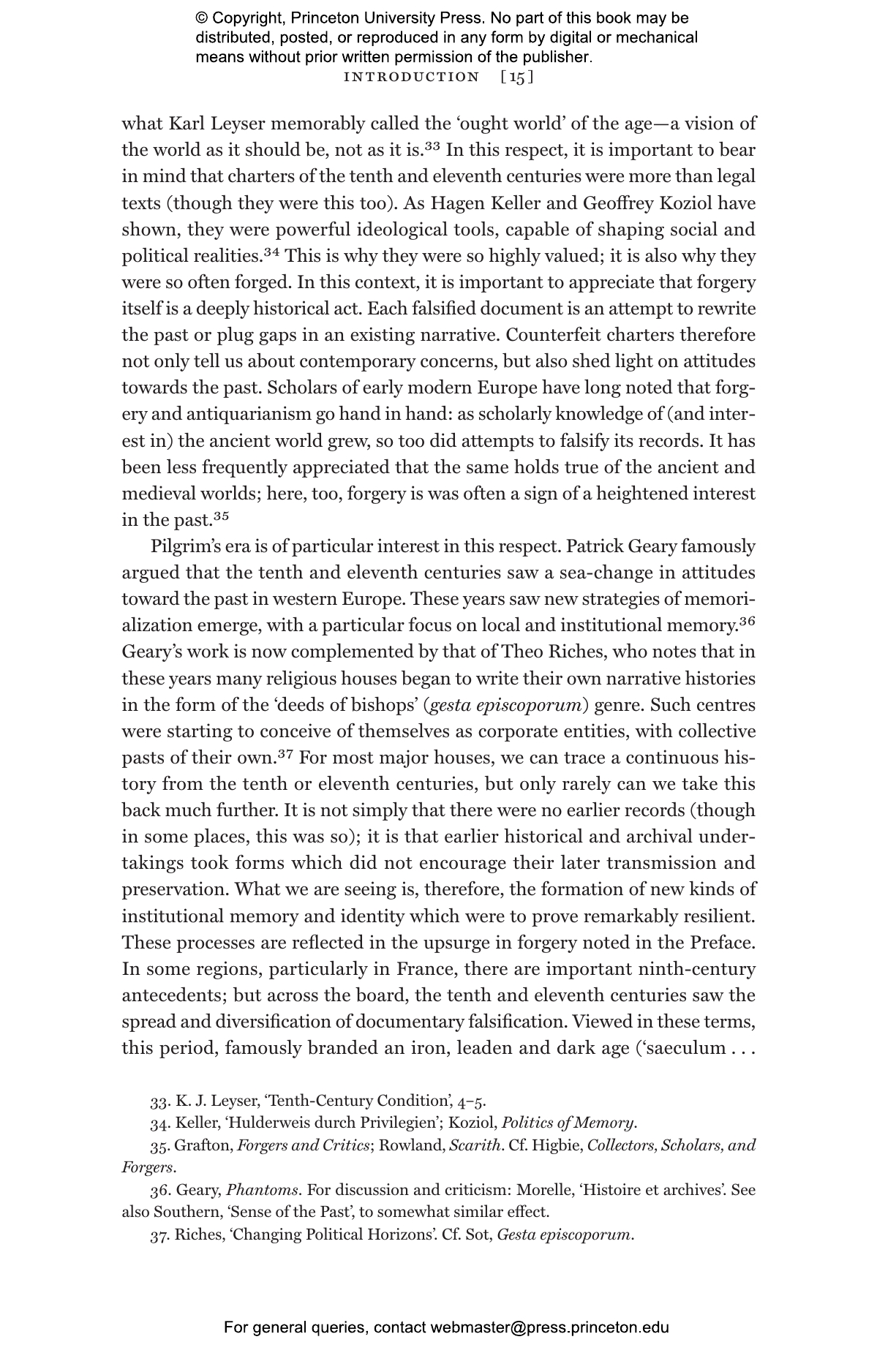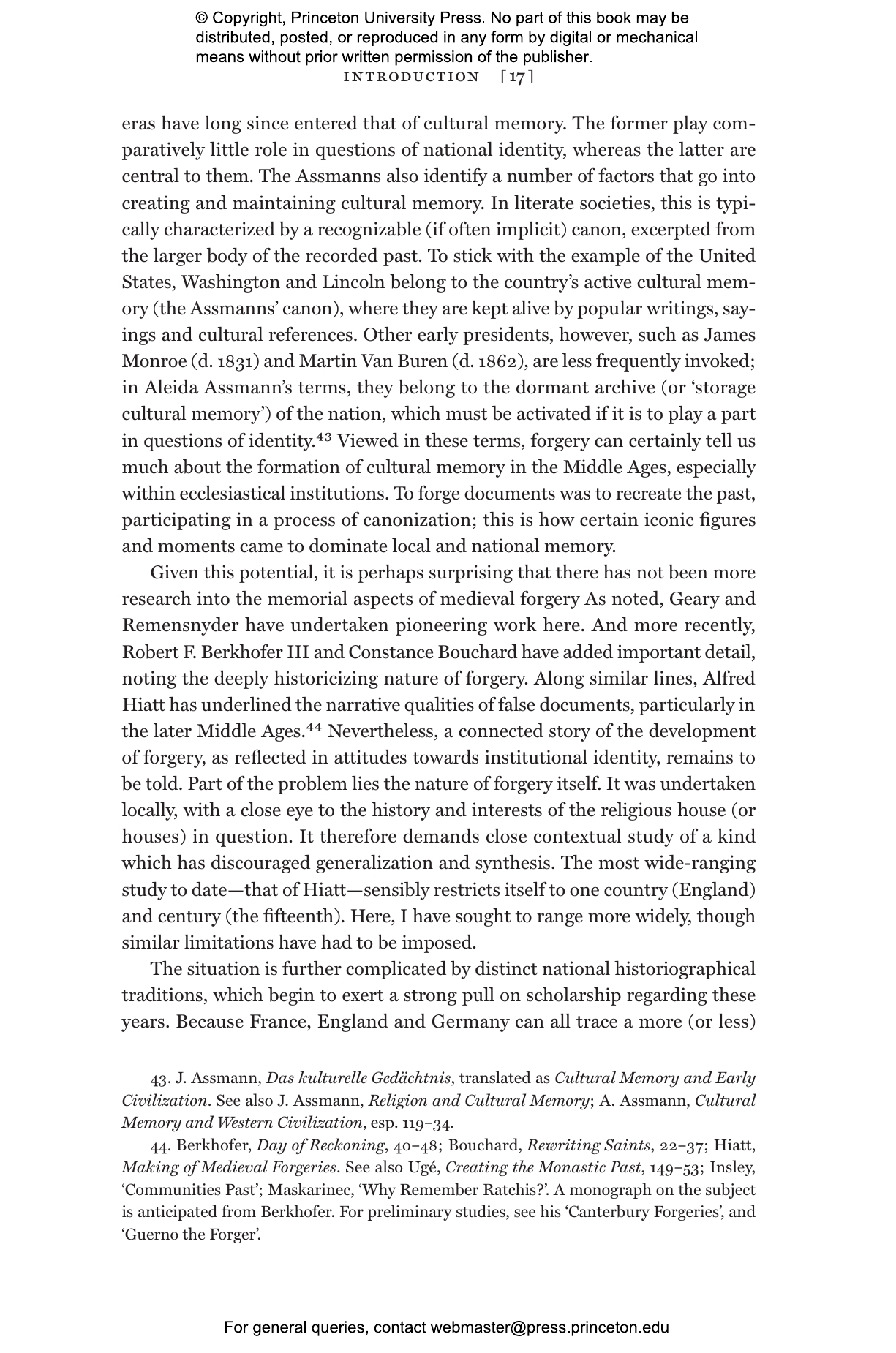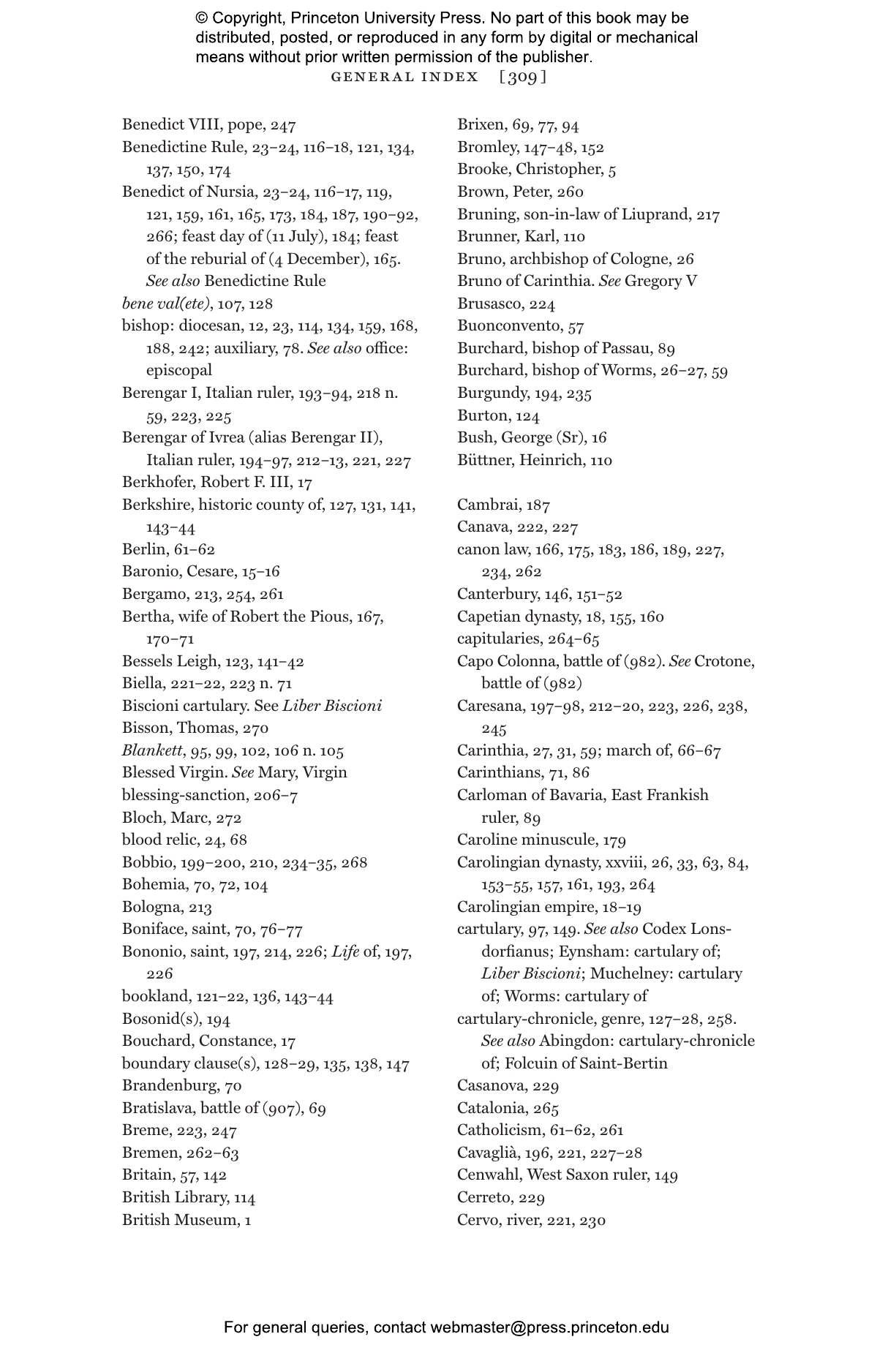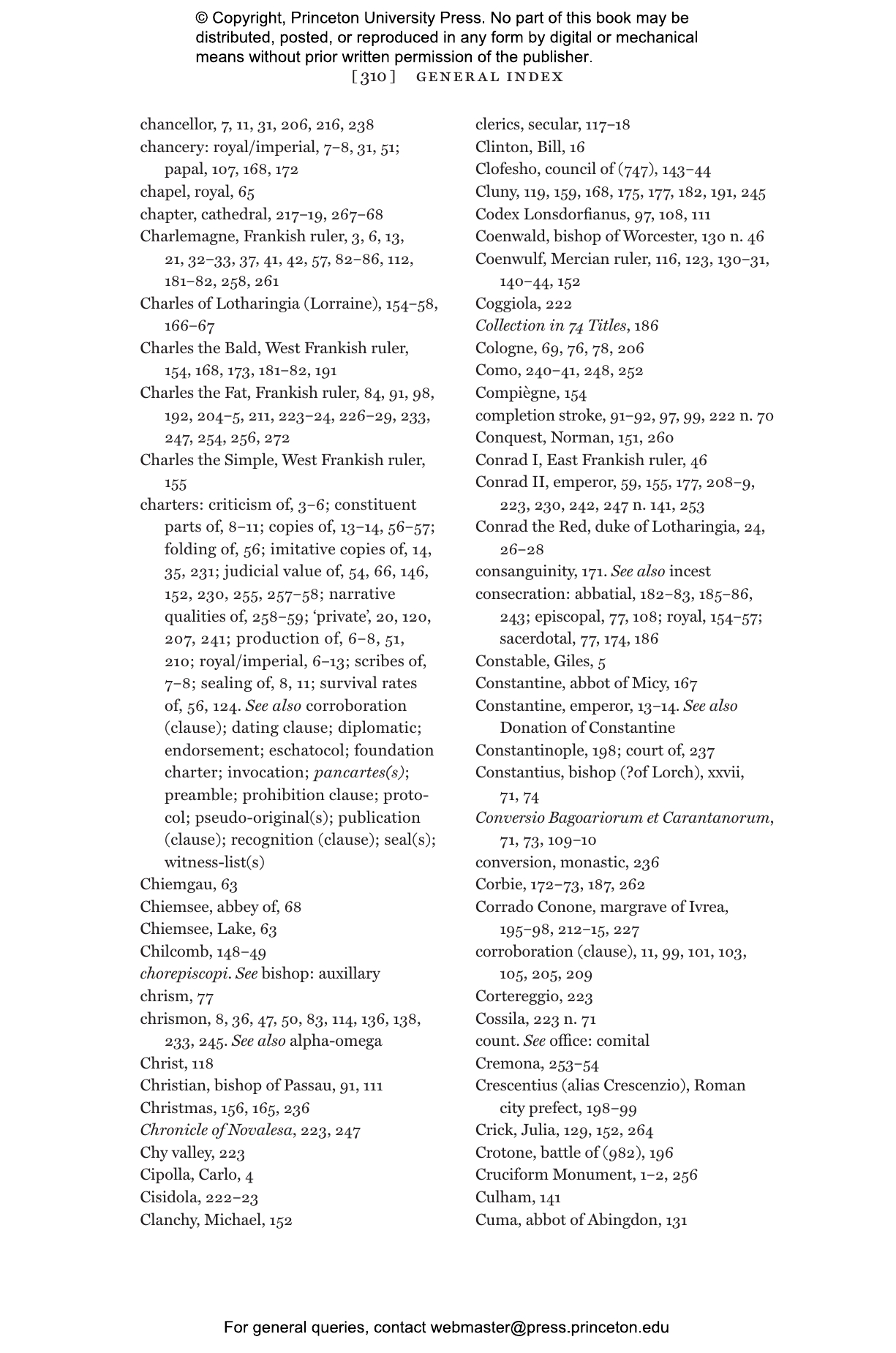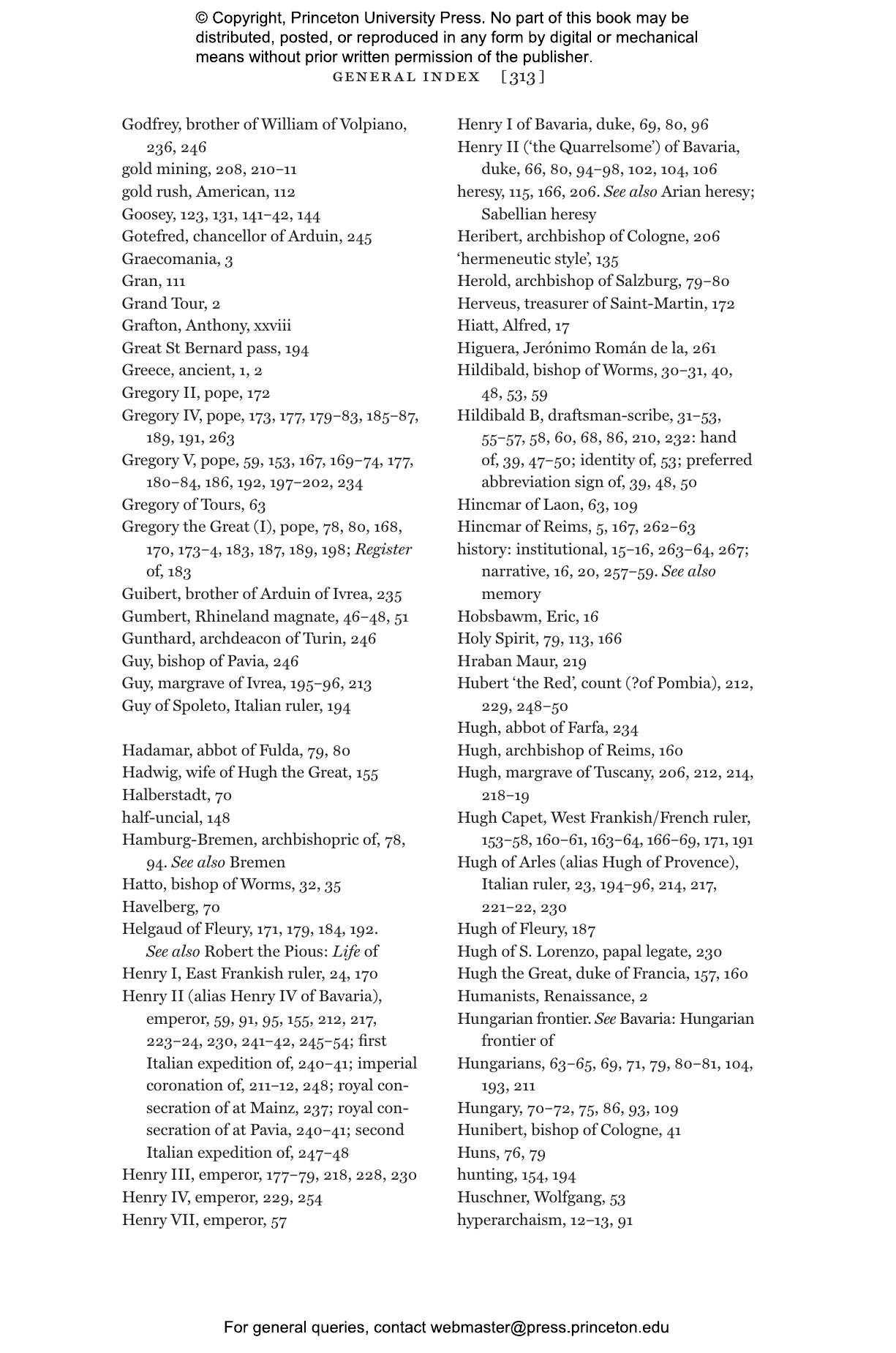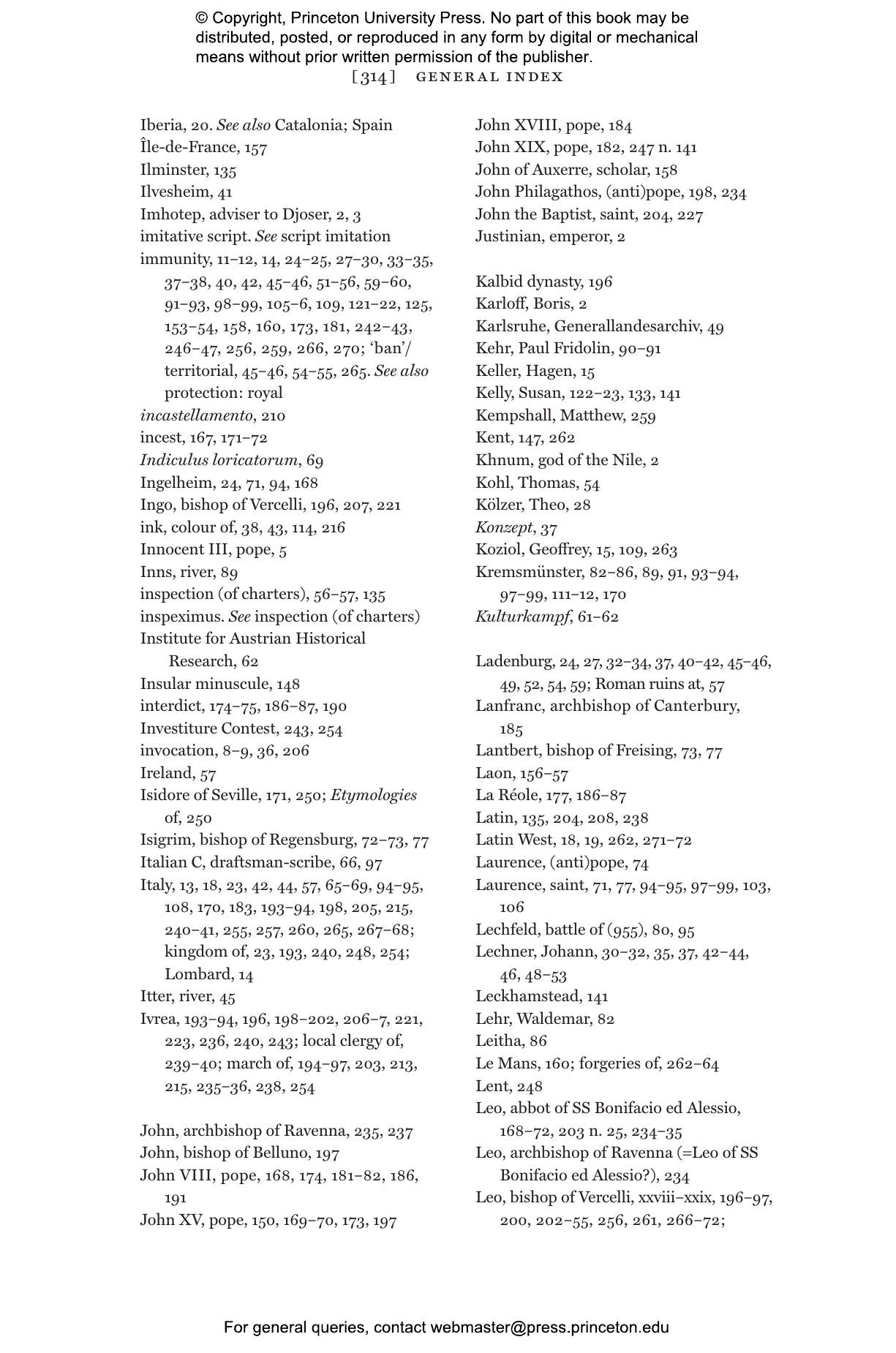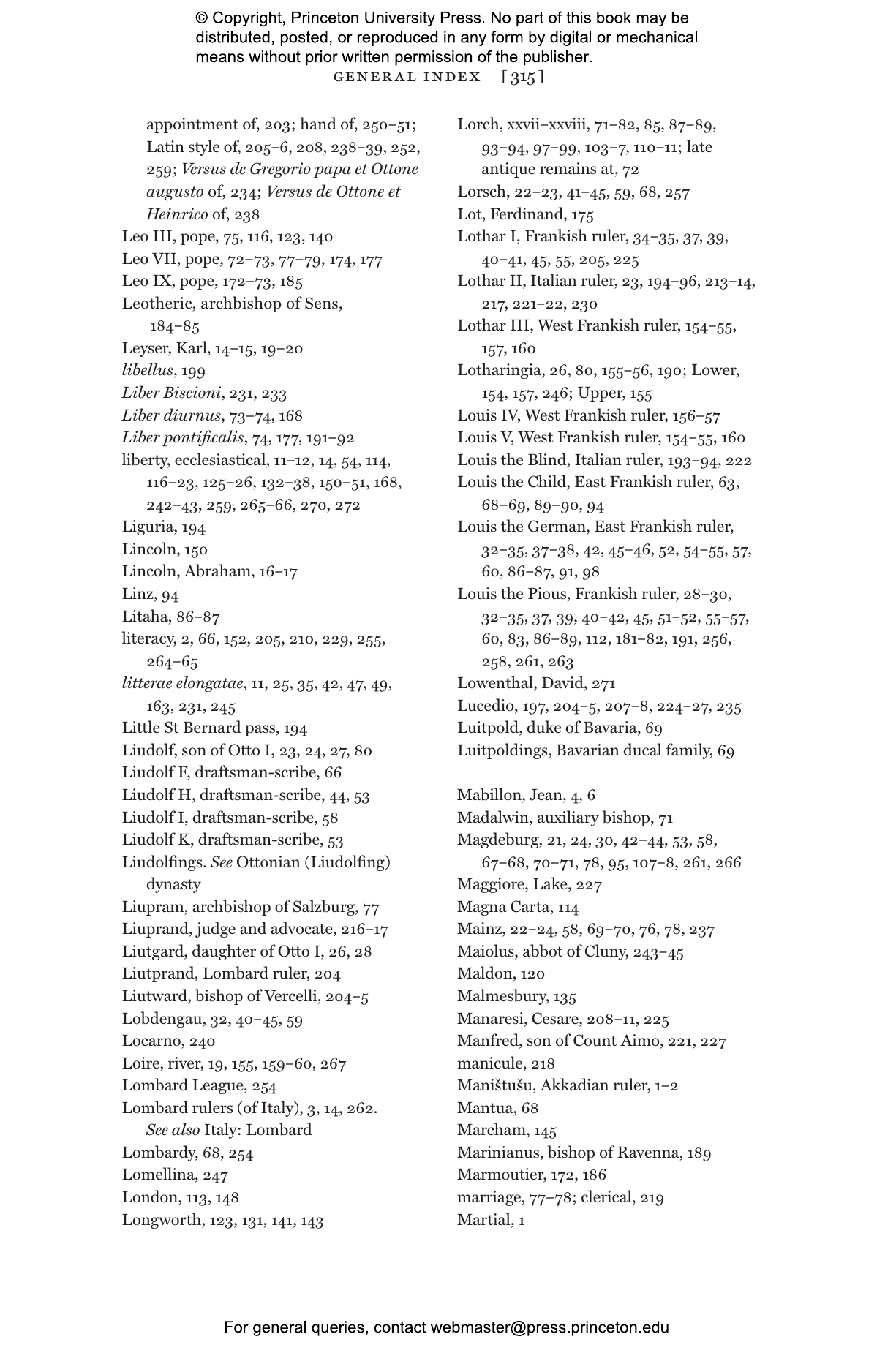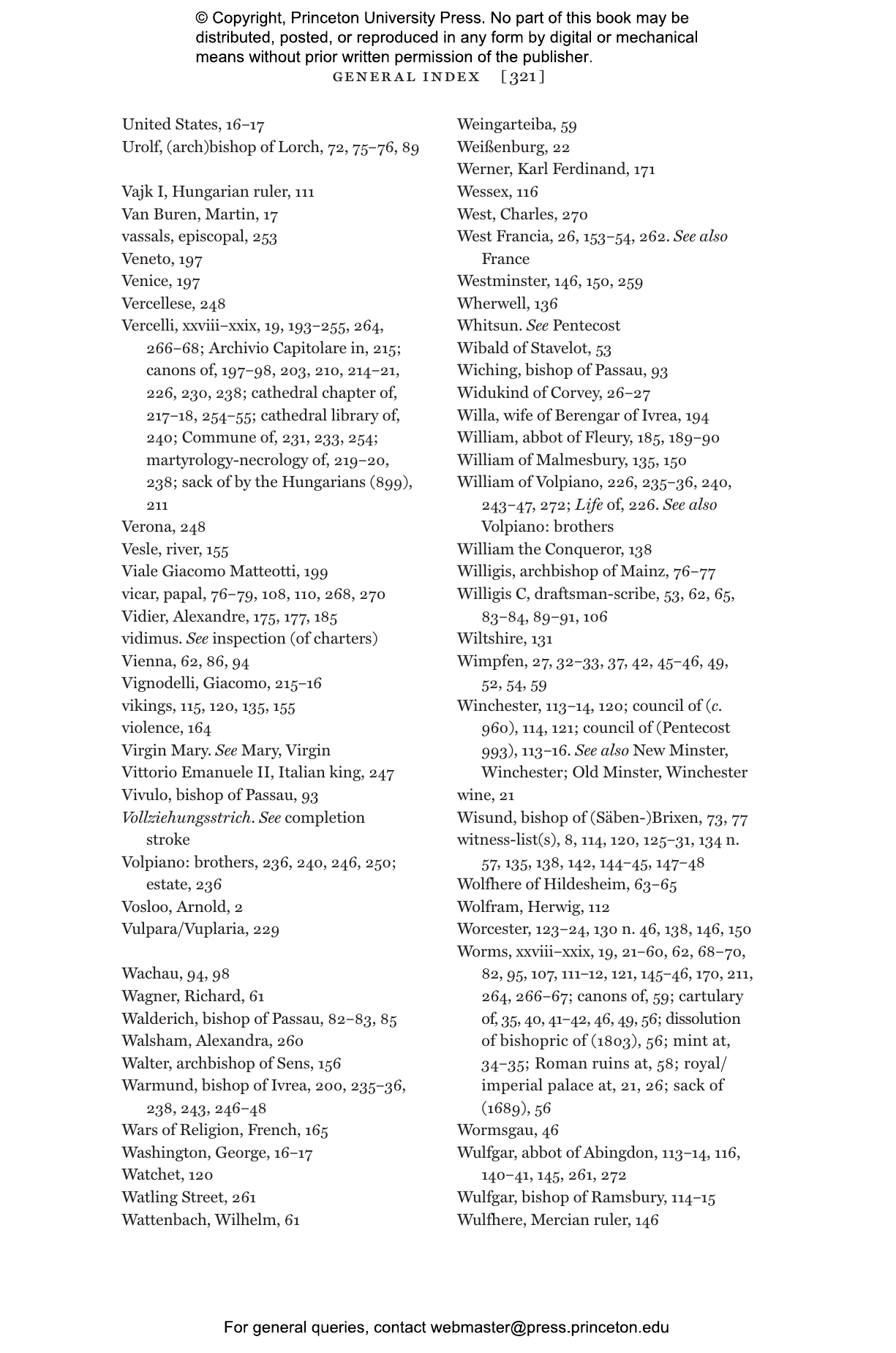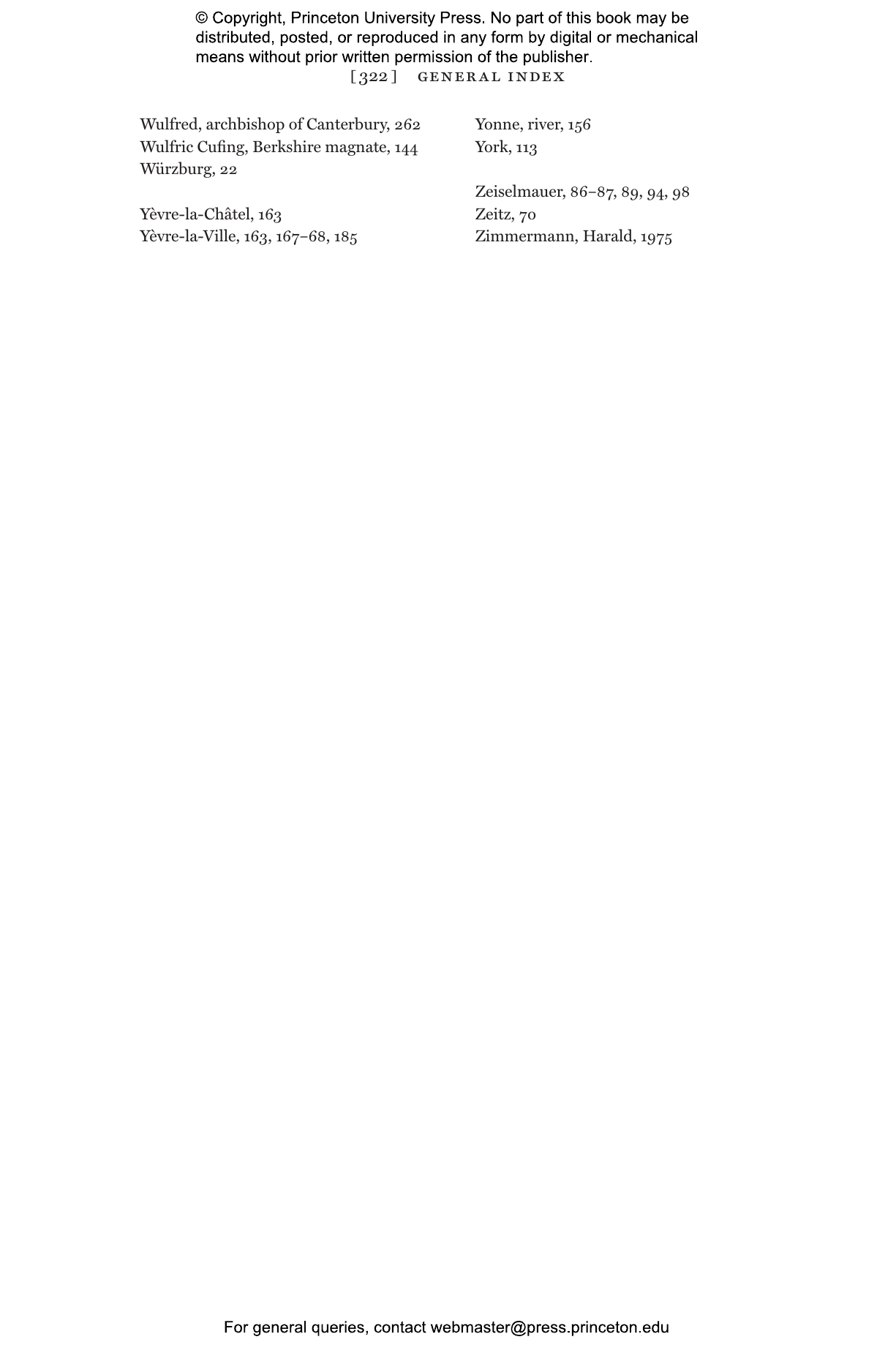Forgery and Memory at the End of the First Millennium takes a fresh look at documentary forgery and historical memory in the Middle Ages. In the tenth and eleventh centuries, religious houses across Europe began falsifying texts to improve local documentary records on an unprecedented scale. As Levi Roach illustrates, the resulting wave of forgery signaled major shifts in society and political culture, shifts which would lay the foundations for the European ancien régime.
Spanning documentary traditions across France, England, Germany and northern Italy, Roach examines five sets of falsified texts to demonstrate how forged records produced in this period gave voice to new collective identities within and beyond the Church. Above all, he indicates how this fad for falsification points to new attitudes toward past and present—a developing fascination with the signs of antiquity. These conclusions revise traditional master narratives about the development of antiquarianism in the modern era, showing that medieval forgers were every bit as sophisticated as their Renaissance successors. Medieval forgers were simply interested in different subjects—the history of the Church and their local realms, rather than the literary world of classical antiquity.
A comparative history of falsified records at a crucial turning point in the Middle Ages, Forgery and Memory at the End of the First Millennium offers valuable insights into how institutions and individuals rewrote and reimagined the past.
"There are few scholars who can match Roach’s range and the result is impressive, based on deep familiarity both with primary materials and previous scholarship."—Kathryn A. Lowe, History Today
"[A] clever book. . . . This study is a major achievement and has made visible a rich
vein of possibilities for further work."—Hans Hummer, Modern Philology
"Levi Roach’s unfailingly interesting close contextual study . . . is a valuable contribution to the very substantial scholarly literature on history, memory and literacy in the early middle ages and is bound to stimulate further debate."—Rosamond McKitterck, Medieval Encounters
"Levi Roach’s book is convincing and impressive on many levels, both in the case studies and in the overarching narrative. . . .It is – contrary to what one might expect of a study that discusses charter studies – a joy to read."—Thomas Kohl, Early Medieval Europe
"This impressive book examines charter-writing campaigns during the tenth century from five churches in four very different regions—England, Germany, the West Frankish kingdom, and the Italian Piedmont. Levi Roach’s treatment of sources is deeply sophisticated and thoroughly up-to-date. I am amazed that he has mastered all of his material so completely. The political analysis is so expert that it alone makes the book worthwhile."—Geoffrey Koziol, University of California, Berkeley
"This fascinating, meticulously researched book makes a compelling case for historians to take medieval forgery seriously as a contribution to social and cultural history. Drawing important connections between the creation of forgeries and the writing of narrative history, Levi Roach sheds new light on attitudes toward the past and on the framing of memory and construction of identities. Accessible and engaging, this work should be required reading for anyone interested in Europe’s so-called Age of Iron."—Sarah Foot, University of Oxford
"Levi Roach has written a marvelous book that ranges across several Western European charter archives and brings alive the creative processes that made these documents. Charters are treated by Roach as literary sources, the products of memory and of the complexities of humanity’s capacity to create a past that serves the interests of the present. His book is effectively a manifesto for the study of charters by medieval historians, and a demonstration of how central charters are to the interpretation of many of the great changes in the medieval West."—David Bates, University of East Anglia
"This is a wonderful book: wide-ranging and learned, it is nonetheless written in a style that will appeal far beyond the academic minority already familiar with medieval forgery. In an era of ‘fake news,’ it is also a timely reminder that lies and make-believe have been fundamental to the manipulation of power throughout human history."—Nicholas Vincent, University of East Anglia
"Forgery and Memory at the End of the First Millennium is a strong and timely book that tells a good story about tenth-century forgery and nineteenth-century scholarship. Roach wears a great deal of learning in a number of different languages with pleasing lightness, and his study of medieval documents is a real achievement. This is a landmark work."—Conrad Leyser, University of Oxford


